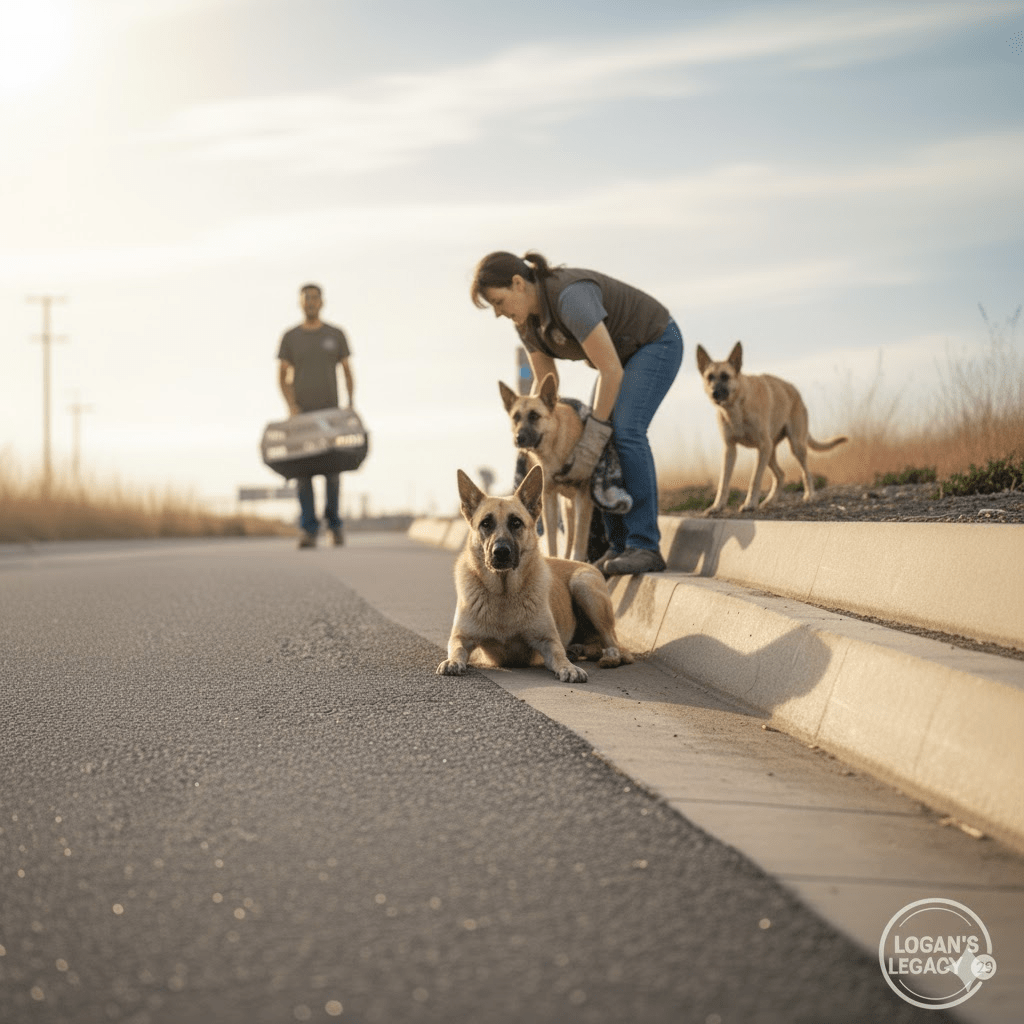The desolate stretch of an anonymous roadside often harbors untold stories of abandonment and despair. It was against such a grim backdrop that Coral, a German Shepherd, was discovered—a skeletal figure of a dog, barely clinging to life, nestled precariously in a concrete drainage ditch. Her ribs protruded like a macabre xylophone, each breath a visible struggle against the ravages of starvation and neglect. Her eyes, clouded with a mixture of fear and resignation, bore witness to a past filled with unimaginable hardship. Local resources, already stretched thin, seemed unable to reach this forgotten soul in time, leaving Coral’s fate hanging by the thinnest thread. The scene was heartbreaking, a stark reminder of the vulnerability of innocent creatures in a world that often turns a blind eye. Yet, even in this darkest hour, an unexpected beacon of hope was about to emerge, setting in motion a series of events that would change Coral’s life forever.
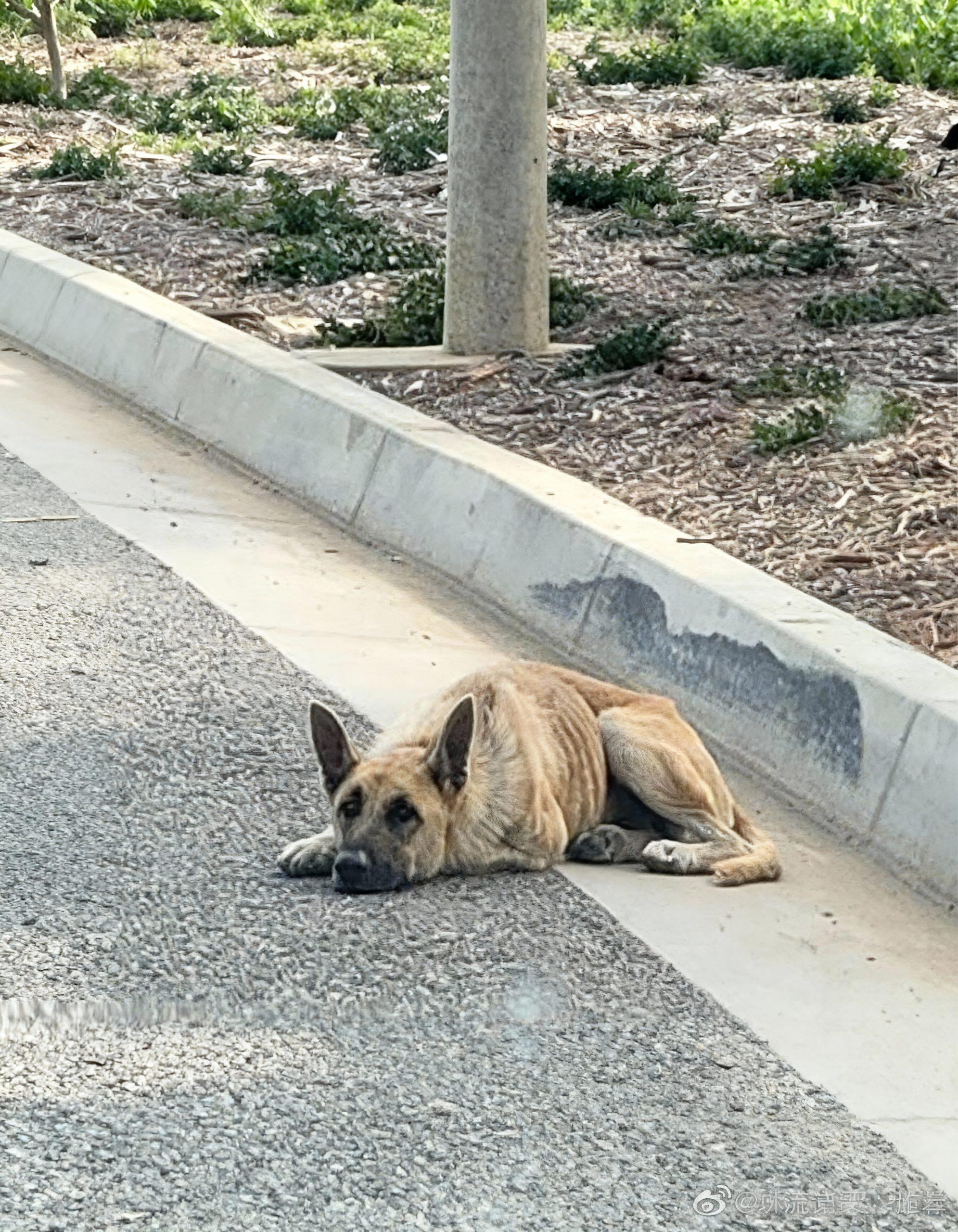
The initial call for help reached Suzette Hall, the tireless founder of Logan’s Legacy 29, a beacon of hope for countless animals in desperate situations. Suzette, renowned for her unwavering dedication, understood the urgency immediately. While other organizations faced bureaucratic hurdles and resource limitations, Suzette’s network was a living, breathing testament to rapid response. She mobilized swiftly, her heart already aching for the creature she hadn’t yet met, knowing that every moment counted in the silent battle for Coral’s survival.
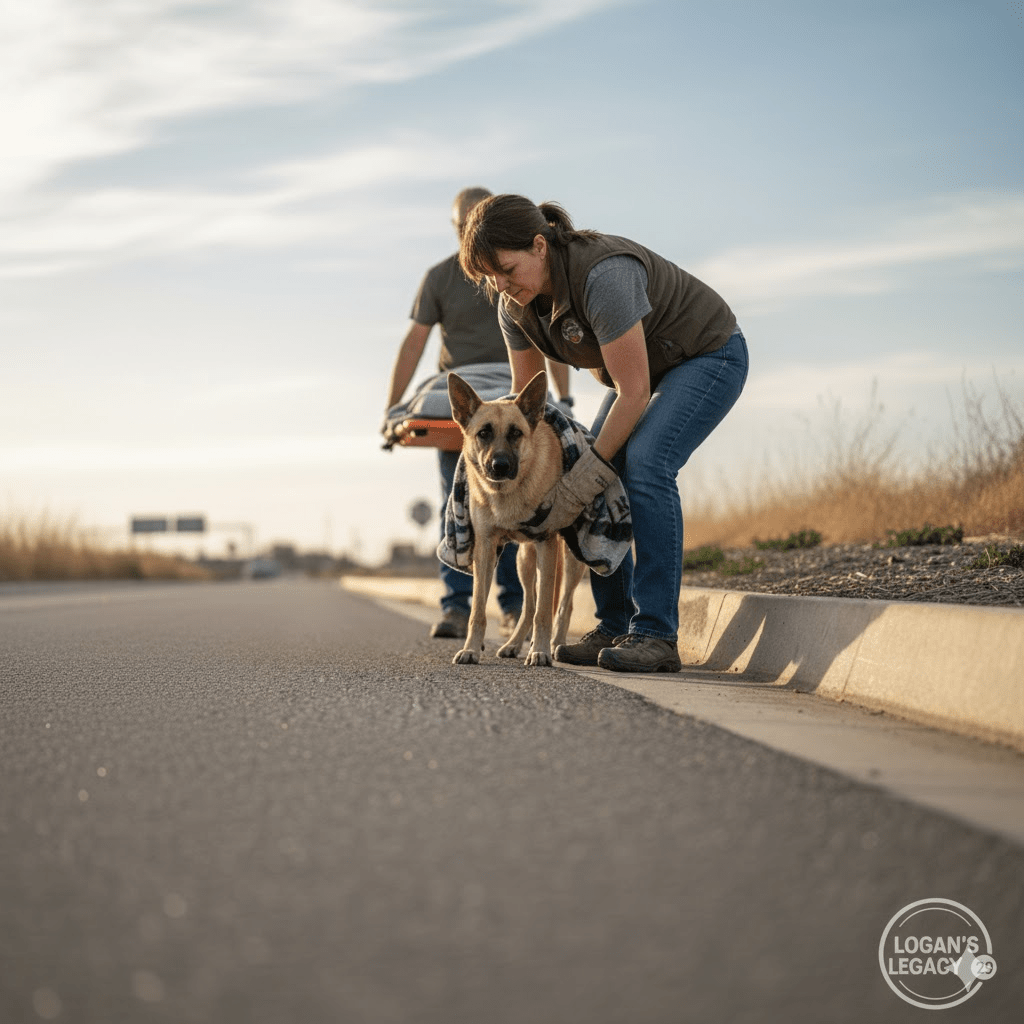
Coral was far more cautious than anticipated. Her emaciated body, though weak, still held the instinctual fear of a creature betrayed. Attempts to approach her were met with a low growl and a desperate scramble further into the ditch. Suzette, a seasoned rescuer, knew that direct force would only traumatize Coral further. What followed was an agonizing hour of patient coaxing, whispered assurances, and carefully placed morsels of food. It was a silent negotiation between fear and trust, a delicate dance under the harsh afternoon sun.
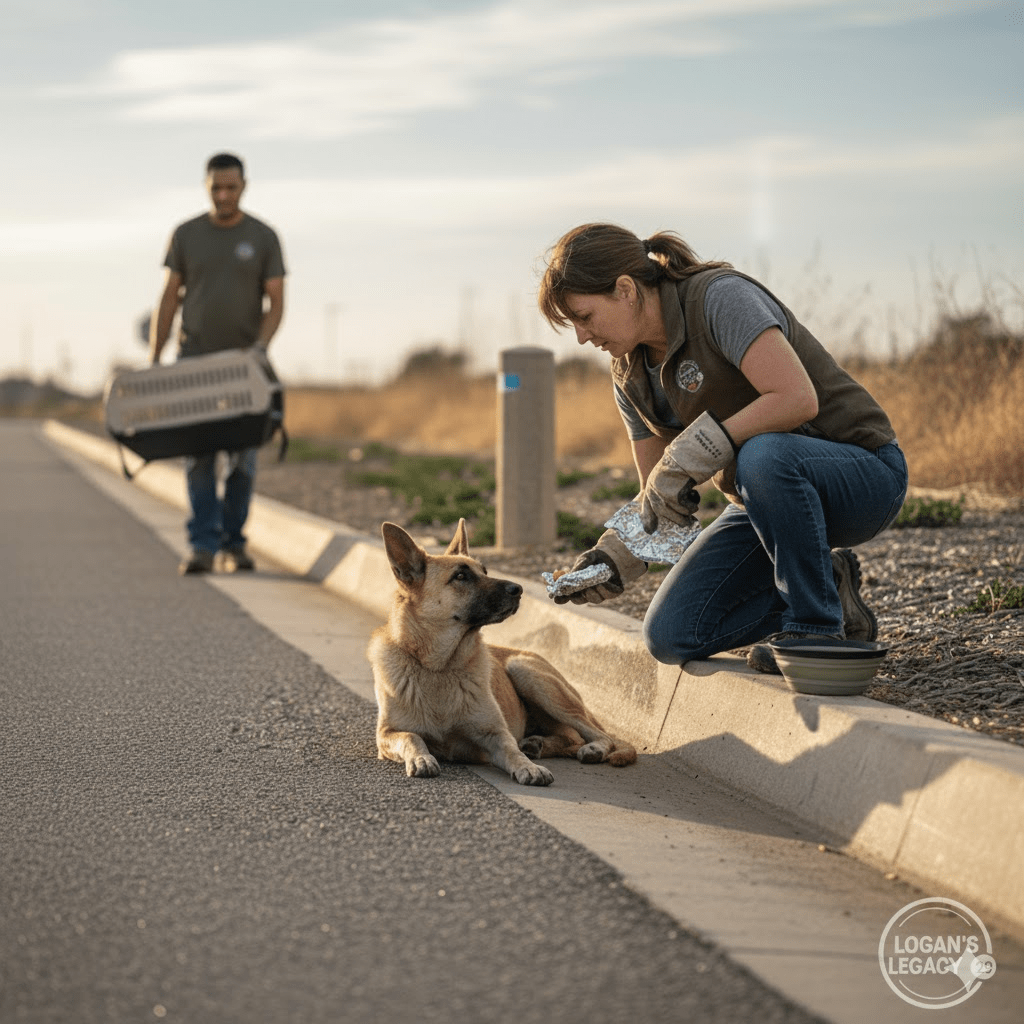
A crucial turning point came when Suzette, recognizing Coral’s fear of confinement, decided against the typical carrier. Instead, she brought out a soft blanket, slowly and gently draping it over Coral. This simple act, intended to provide comfort and security rather than restraint, seemed to crack Coral’s hardened exterior. Beneath the layers of fear, a flicker of hope ignited. The blanket wasn’t a trap; it was a sanctuary.
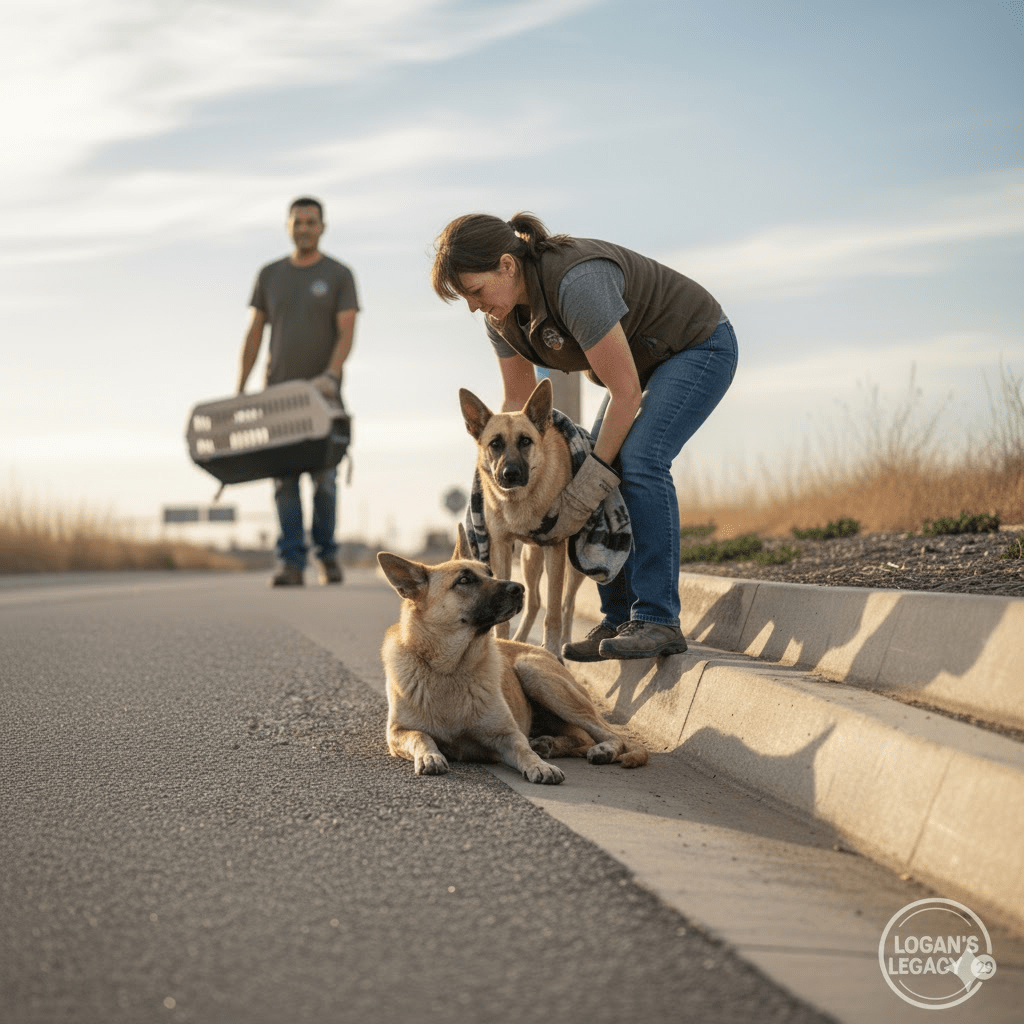
The next twist came in the form of an unexpected companion. As Suzette gently guided Coral towards her vehicle, another emaciated German Shepherd, seemingly from out of nowhere, emerged from the bushes nearby. This second dog, equally gaunt and wary, seemed to be Coral’s shadow, her protector. It became clear that Coral wasn’t alone in her suffering; she had a friend, equally in need of rescue, complicating an already delicate operation.
